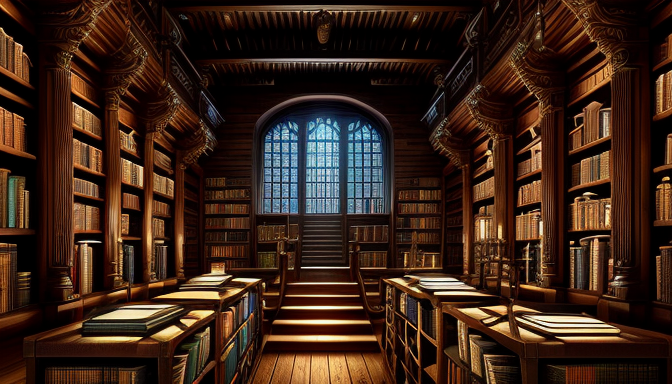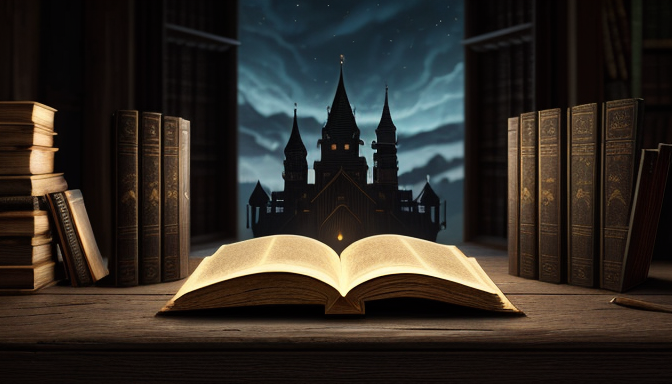When you dive into a fantasy novel, what truly pulls you in? Is it the thrilling adventures or the complex characters? Often, it’s the arcane lore that forms the backbone of these mesmerizing worlds. Imagine a universe where magic isn’t just a tool, but a living, breathing entity that shapes the very fabric of reality. From the moment you step into these realms, you’re greeted by a rich tapestry of rules and traditions that dictate how magic operates.
In fantasy storytelling, magic can be categorized into two main types: soft and hard magic systems. Soft magic systems are more mysterious, often leaving readers guessing about the limits and rules of magic. Think of the enchanting spells in Harry Potter, where the intricacies of magic are often left unexplained, allowing for a sense of wonder. On the other hand, hard magic systems, like those found in Brandon Sanderson’s works, provide defined rules and limitations, making the magic feel more tangible and logical. This distinction not only enhances the plot but also influences character development and their interactions with the world around them.
Furthermore, arcane traditions and spell classifications add layers to the narrative. Whether it’s the ancient tomes of a wizard’s library or the secretive rituals of a coven, these elements create a sense of history and depth. They invite readers to explore the mysteries of the world, making each page turn feel like an adventure into the unknown. So, the next time you get lost in a fantasy saga, take a moment to appreciate how arcane lore shapes not just the story, but also your experience as a reader.
The Role of Mythology in Fantasy Lore
Mythology is the lifeblood of fantasy worlds, acting as a foundation upon which intricate tales are built. Imagine diving into a world where ancient gods and legendary creatures come to life, shaping the destinies of heroes and villains alike. It’s like stepping into a grand tapestry woven with threads of history, culture, and belief. The stories we love are often steeped in the rich traditions of myth, providing a context that resonates deeply with our own understanding of the world.
When we explore the realms of fantasy, we find that mythology does more than just entertain; it enriches the narrative. Think about it: every epic hero has a backstory tied to their culture’s myths. From the valiant knights of Arthurian legend to the trickster gods of Norse tales, these narratives offer a lens through which we can examine our own values and fears. They serve as a mirror, reflecting societal norms and aspirations while also pushing the boundaries of imagination.
Additionally, mythology introduces us to a diverse array of characters and creatures. These beings often embody the virtues and vices of humanity, making them relatable and compelling. For instance, consider the
- Dragons as symbols of power and greed
- Fairies representing the duality of innocence and mischief
- Giants who challenge the very notion of strength and vulnerability
. Each of these figures adds layers to the story, inviting readers to ponder their own moral dilemmas.
In essence, mythology is not just a backdrop; it is a vital component of fantasy lore that shapes characters, plots, and entire worlds. It invites us to explore the infinite possibilities of existence, reminding us that every tale has roots in the ancient stories that came before. So, the next time you lose yourself in a fantasy novel, take a moment to appreciate the mythological threads that bind these stories together.

The Influence of Magic Systems
Magic systems are the beating heart of many fantasy worlds, creating a framework that not only defines how magic operates but also influences the very fabric of the narrative. Imagine stepping into a world where magic is as common as the air you breathe; it shapes everything from the mundane to the extraordinary. In these realms, the rules governing magic can vary widely, leading to two primary categories: soft magic and hard magic.
Soft magic systems are often mysterious and unpredictable, allowing for a sense of wonder and awe. They serve as a narrative tool, providing authors the freedom to introduce unexpected twists. Think of it like a magician pulling a rabbit out of a hat—you’re not concerned about how it got there; you’re just mesmerized by the spectacle. In contrast, hard magic systems come with strict rules and limitations, much like a well-defined game. They allow readers to understand the mechanics behind the magic, creating a sense of logic and consistency that can heighten tension and stakes in the story.
Furthermore, the classification of spells within these systems can significantly impact character development. For instance, a character trained in elemental magic might face different challenges than one who wields necromancy. This differentiation not only enriches the plot but also deepens the reader’s connection to the characters. With various arcane traditions influencing how magic is perceived and practiced, the possibilities are virtually endless. In conclusion, the magic system isn’t just a backdrop; it’s a vital element that shapes the journey of every hero and villain within the fantasy landscape.
Frequently Asked Questions
- What is arcane lore?
Arcane lore refers to the intricate systems of magic, myths, and legends that shape the fabric of fantasy worlds. Think of it as the secret sauce that adds depth and richness to a story, making it feel alive and immersive.
- How does mythology influence fantasy storytelling?
Mythology acts like a treasure chest of ideas, providing authors with cultural backstories, character motivations, and moral dilemmas. It’s like having a built-in guide that helps to create a believable and relatable universe.
- Why are magic systems important in fantasy?
Magic systems set the rules of engagement in a fantasy world. They define what characters can or cannot do, creating tension and excitement in the plot. It’s like having a game with clear rules; it makes the story more engaging and unpredictable!
- Can arcane lore change over time?
Absolutely! Just like our own cultures evolve, so can the lore in a fantasy world. Authors often expand or modify their magic systems and mythologies to keep the story fresh and captivating.

Recent Comments